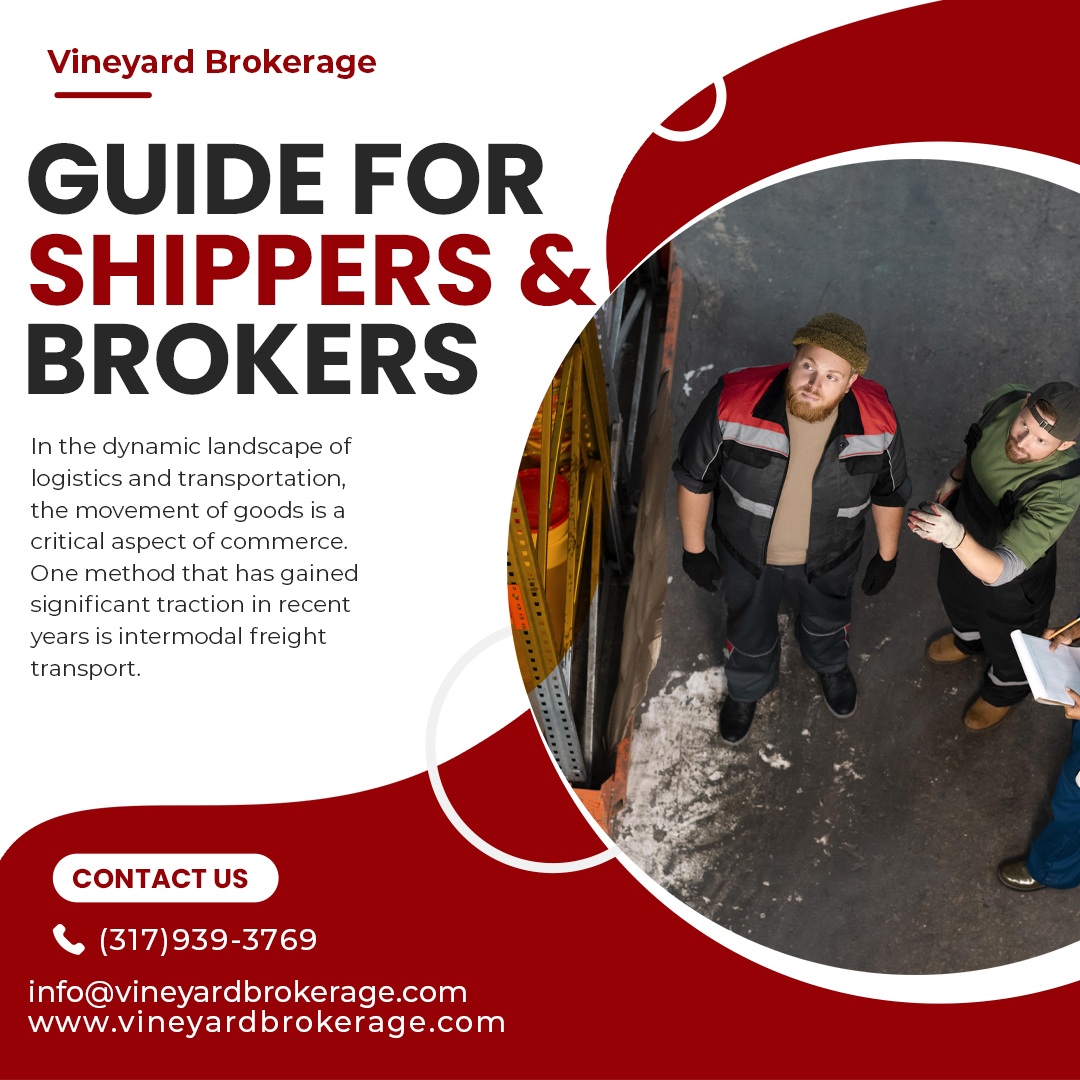Intermodal freight transport involves the movement of goods using multiple modes of transportation, typically combining truck, rail, and sometimes maritime shipping. The primary objective is to optimize efficiency and minimize costs by leveraging the strengths of each mode. At its core, intermodal transport relies on standardized containers that can seamlessly transition between different modes of transportation without the need for manual handling of cargo.
Truck load, often referred to as full truckload (FTL) shipping, remains a fundamental component of intermodal freight transport. While intermodal transport offers advantages in terms of cost savings and environmental sustainability, there are instances where truck load becomes the preferred option. For time-sensitive shipments or destinations lacking proper rail infrastructure, direct truck load services are invaluable. However, savvy logistics providers like Vineyard Brokerage recognize the potential synergies between truck load and intermodal transport, strategically integrating both options to offer comprehensive solutions to their clients.
Intermodal freight brokers serve as the linchpin in the intermodal transportation ecosystem, connecting shippers with carriers and orchestrating seamless logistics operations. These brokers leverage their industry expertise, network of carriers, and technological tools to optimize shipping routes, negotiate competitive rates, and ensure timely delivery of goods. Vineyard Brokerage, with its dedication to customer service and commitment to excellence, exemplifies the qualities of a trusted intermodal freight broker.
1. Cost Efficiency:
By leveraging economies of scale and utilizing multiple modes of transportation, intermodal shipping can significantly reduce transportation costs compared to traditional trucking methods.
2. Environmental Sustainability:
Intermodal transport reduces carbon emissions and fuel consumption per ton-mile, making it a more environmentally friendly option compared to long-haul trucking.
3. Reliability:
The use of standardized containers and dedicated intermodal terminals enhances the reliability and predictability of delivery schedules, reducing the risk of delays and disruptions.
4. Capacity Flexibility:
Intermodal transport offers greater flexibility in capacity management, allowing shippers to scale their operations according to fluctuating demand without compromising efficiency.
While intermodal freight transport offers numerous benefits, it also presents certain challenges and considerations that must be addressed:
1. Infrastructure Constraints:
In some regions, inadequate rail infrastructure or limited access to intermodal terminals may hinder the viability of intermodal transport.
2. Equipment Compatibility:
Ensuring compatibility between different modes of transportation and handling equipment is crucial to prevent delays and inefficiencies.
3. Intermodal Drayage:
The movement of containers between rail terminals and final destinations, known as drayage, can introduce additional costs and complexities.
4. Security and Risk Management:
Protecting cargo from theft, damage, and other security risks remains a paramount concern in intermodal shipping operations.
To navigate the complexities of intermodal freight transport successfully, shippers and brokers can adopt the following strategies:
1. Partner with Reliable Providers:
Collaborate with reputable carriers, railroads, and intermodal terminals to ensure the reliability and efficiency of transportation services.
2. Embrace Technology:
Leverage advanced logistics software and tracking systems to monitor shipments in real-time, optimize routes, and proactively address potential issues.
3. Optimize Supply Chain Visibility:
Enhance visibility and transparency across the supply chain by implementing integrated data-sharing platforms that provide stakeholders with timely updates and insights.
4. Prioritize Safety and Compliance:
Adhere to industry regulations and best practices to ensure the safety and security of cargo throughout the transportation process.
As a leading brokerage company specializing in intermodal freight transport, Vineyard Brokerage is committed to delivering unparalleled service and value to its clients. With a focus on customer satisfaction, operational excellence, and innovation, Vineyard Brokerage stands as a reliable partner for shippers seeking efficient and cost-effective transportation solutions. Whether it’s optimizing shipping routes, negotiating competitive rates, or providing exceptional customer support, Vineyard Brokerage remains dedicated to exceeding expectations and driving success in the dynamic world of logistics.


